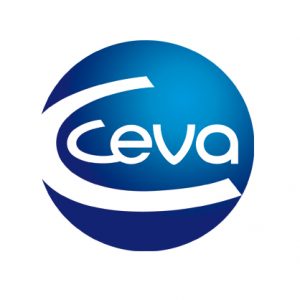Gumboro disease control: Vaccination of the broilers

Gumboro disease, as a resident virus, is already present inside the farm, in the litter, or before the day-old chicks are released onto the floor, so the probability of challenge for most farms is very high. The characteristics of this challenge (age, severity, consequences, etc.) will vary from poultry house to poultry house, but the disease challenge will definitely occur.
In this situation, it is understandable that vaccination should aim at both protecting the broilers and preventing the challenge from getting out of control, that is, at ‘controlling’ the Gumboro Disease.

Key approaches that should be considered for complete Gumboro Disease management:
- Vaccination of the breeders, to transfer Maternal Antibodies to the chicks
- Vaccination of the broilers
- Biosecurity
- Diagnostic and surveillance
- Environment management
Broiler vaccination
For the very initial protection of the chicks, it means the first 2 weeks of age, the MDAs (Maternal delivered antibodies) will be essential. But after the decrease of the MDA level the chick should build up their own active immunity.
To generate the active immunity, the name of the game on controlling IBD will be through vaccination. By blocking the bursa, by the replication of the vaccine virus, and this way preventing the field strains from infecting the chick.
The Figure below shows what the objectives of Gumboro vaccination programme should be.

For this, a live virus must be used, so that this block actually occurs. The strain used in the immune-complex IBD vaccine, as the W2512, must be attenuated and maintain its invasiveness without generating any kind of permanent damage to the cells of the bursa. It is important to note that the lymphoid depletion generated by intermediate or intermediate plus strains, in which a decrease in bursa size is observed, is physiological and transient, not impacting the immune system of birds.
Immune-complex vaccine
At the same time, this virus must be protected by antibodies (Virus Protecting Immunoglobulins VPI) so that the release occurs at the right time, and the inactivation of this vaccine virus does not occur, as in the Immune-complex IBD vaccines. A correct balance between the IBD virus and the anti IBDV antibodies is of crucial importance for the efficacy and safety of these vaccines.
not occur, as in the Immune-complex IBD vaccines. A correct balance between the IBD virus and the anti IBDV antibodies is of crucial importance for the efficacy and safety of these vaccines.
The immune-complex vaccine, as Transmune, have the ability to fully colonise the bursa, protect against all field IBD viruses and overcome MDA; some of the key advantages of the immune-complex vaccines. The vaccine take occurs when the MDA level decreases to a point that allows the vaccine virus to be released and to reach the bursa of Fabricius. From this moment on, the vaccine strain will replicate in the bursa of Fabricius and the chicken will be immunised against any type of IBD virus. The fact that the virus is covered by VPI´s is important to maintain safety and stability in chickens with varying levels of maternal antibodies. In case of low levels of MDAs, replication of the vaccine virus will occur earlier, and in birds with higher levels of MDA, it will occur later. In all birds thus adapted according to the most appropriate time for replication, and thus onset of active immunity.

Gumboro vaccination programme
Understanding the important to block the bursa by a live vaccine, and in this way prevent the build-up of a higher virus pressure, cycle after cycle, and stop the evolution of the IBD virus towards a form that could escape the prevention programme.
These are the consequences of the ‘protection against shedding’. In other words, the objectives of a sound Gumboro vaccination programme should aim at stopping the Gumboro cycle. To achieve the stop of the Gumboro disease, the vaccination programme should be well fitted.

Better disease control
As summary, to have IBD control and keep the consistency of the broiler production, provide protection against clinical and sub-clinical infection, and prevention of field virus replication is essential. But it should be done with safety, as the immune-complex vaccine Transmune, that adapts to different maternal delivered antibodies levels, blocking the bursa for a better Gumboro disease control.






